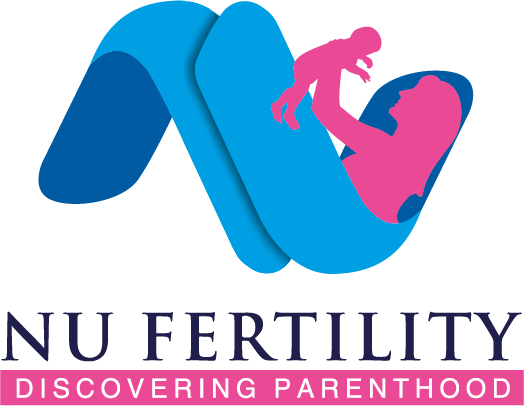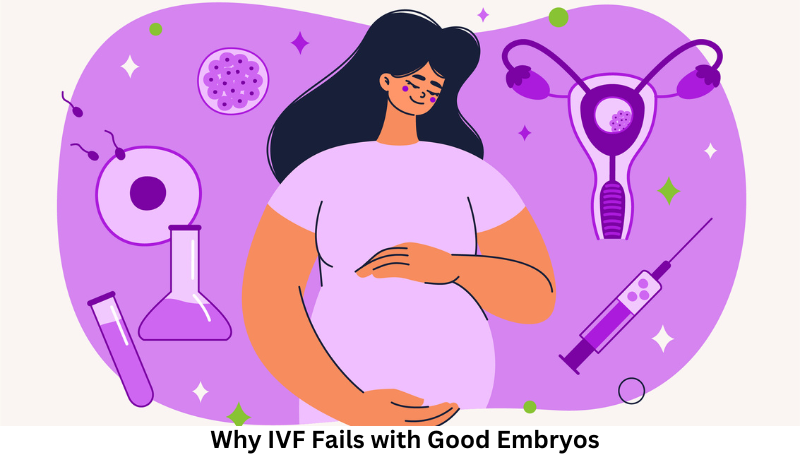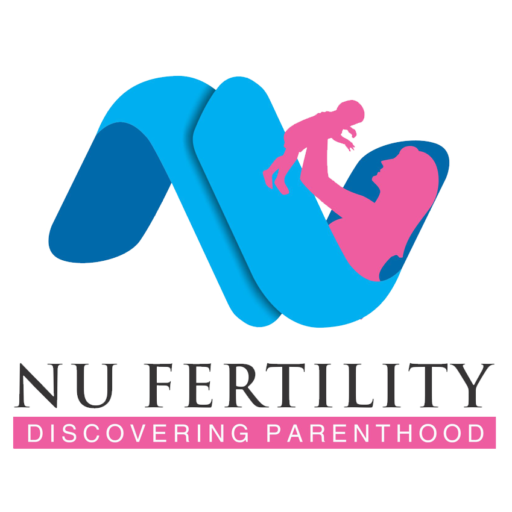In vitro fertilisation (IVF) offers hope to many couples struggling with infertility. However, even with high-quality embryos, not all IVF cycles result in a successful pregnancy.
Out of the several other factors determining the success of IVF, the womb of the women i.e. the uterine environment and maternal health play critical roles. Understanding these factors can help couples and healthcare providers navigate the challenges of IVF failure and plan for future attempts.
How the Uterine Environment Favors Pregnancy
The uterine environment must be optimal for an embryo to implant and develop into a healthy pregnancy. Several factors contribute to a favourable uterine environment:
- Endometrial Receptivity: The lining of the uterus, known as the endometrium, must be receptive to the embryo. This receptivity is influenced by hormonal balance, particularly the levels of estrogen and progesterone.
- Blood Flow: Adequate blood flow to the uterus ensures that the endometrium receives the necessary nutrients and oxygen to support embryo implantation and growth.
- Immune System: A balanced immune response is crucial. The immune system must tolerate the embryo, which is genetically different from the mother, to prevent rejection.
- Uterine Anatomy: A healthy uterine structure, free from abnormalities such as fibroids, polyps, or congenital malformations, is essential for successful implantation.
Evaluating the Uterine Environment
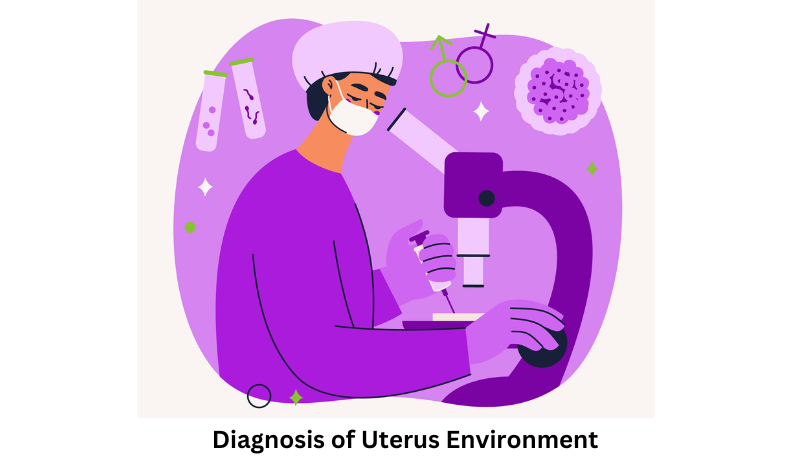
To assess the uterine environment, healthcare providers may use various diagnostic tools:
- Ultrasound: Transvaginal ultrasound helps evaluate the thickness and structure of the endometrium and identify any anatomical abnormalities.
- Hysteroscopy: This procedure involves inserting a small camera into the uterus to directly visualise the uterine cavity and diagnose issues like polyps or fibroids.
- Endometrial Biopsy: A small sample of the endometrial tissue is taken to analyse its receptivity and detect any signs of chronic inflammation or infection.
- Blood Tests: Hormonal evaluations, including levels of estrogen, progesterone, and thyroid hormones, help ensure hormonal balance.
Maternal Health Factors Affecting IVF Success
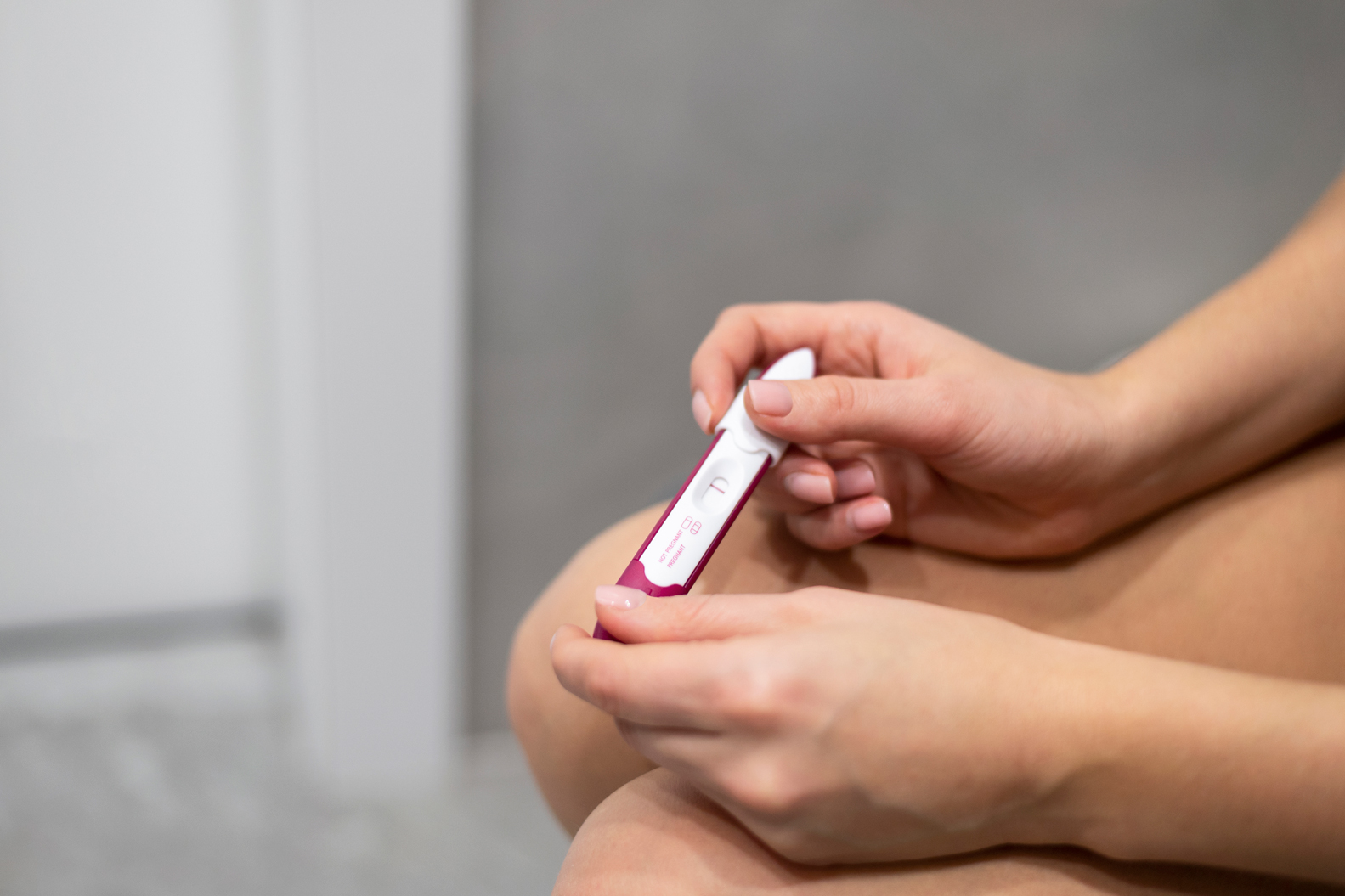
Maternal health plays a critical role in in vitro fertilisation (IVF) success. Several maternal health factors, including uterine anatomical abnormalities, thrombophilia, non-receptive endometrium, and immunological factors, can significantly impact IVF outcomes.
Understanding and addressing these factors can help improve the chances of a successful pregnancy.
Uterine Structural (Anatomical) Abnormalities
Uterine anatomical abnormalities can impede the implantation and growth of an embryo.
Common abnormalities include uterine fibroids, polyps, adhesions, and congenital malformations like septate or bicornuate uterus.
Fibroids, especially those within the uterine cavity, can distort the endometrial lining, creating an inhospitable environment for embryo implantation.
Polyps, small growths in the uterine lining, can also interfere with implantation. Adhesions, or scar tissue, can result from surgeries or infections, leading to Asherman’s syndrome, where the uterine cavity is partially or completely destroyed. Congenital abnormalities, such as a septate uterus, involve a division within the uterine cavity, making it difficult for an embryo to implant and grow.
Diagnostic tools like hysteroscopy, saline sonography, and MRI can identify these abnormalities, and surgical interventions can often correct them, enhancing the chances of IVF success.
Thrombophilia
Thrombophilia refers to an increased tendency to form blood clots and can adversely affect IVF outcomes. Conditions like antiphospholipid syndrome, Factor V Leiden mutation, and prothrombin gene mutation are common thrombophilias that can impair blood flow to the placenta and developing embryo.
This impaired blood flow can lead to failed implantation or early pregnancy loss. Women with a history of recurrent miscarriages or unexplained IVF failures may be tested for thrombophilic conditions.
If diagnosed, treatment options such as low-dose aspirin, heparin, or other anticoagulants can be prescribed during the IVF cycle and pregnancy to improve uterine blood flow and reduce the risk of clot formation, thereby increasing the likelihood of a successful pregnancy.
Non-Receptive Endometrium
A non-receptive endometrium is a major barrier to successful embryo implantation.
Endometrial receptivity is primarily determined by hormonal synchronisation and molecular signalling during the “window of implantation,” typically occurring between days 19-21 of a regular menstrual cycle. Factors such as hormonal imbalances, chronic endometritis (inflammation of the endometrium), and abnormal expression of adhesion molecules can render the endometrium non-receptive.
The Endometrial Receptivity Array (ERA) test is a diagnostic tool used to evaluate the gene expression profile of the endometrium, determining the optimal time for embryo transfer.
Addressing issues such as hormonal imbalances with tailored medication protocols, treating endometritis with antibiotics, and timing embryo transfer to align with the personalised window of implantation can improve endometrial receptivity and enhance the chances of successful IVF.
Immunological Factors
Immunological factors can significantly impact IVF success by affecting embryo implantation and pregnancy maintenance. An overactive immune system may reject the embryo, perceiving it as a foreign body.
Conditions such as autoimmune thyroid disease, elevated natural killer (NK) cell activity, and the presence of anti-nuclear antibodies (ANA) can lead to implantation failure or early pregnancy loss. Immune system modulation through the use of corticosteroids, intravenous immunoglobulin (IVIG), or intralipid infusions has been explored to enhance IVF outcomes.
Additionally, treating underlying autoimmune conditions, optimising thyroid function, and closely monitoring immune parameters during the IVF cycle can create a more favourable environment for embryo implantation and growth.
Conclusion
Understanding the role of the uterine environment and maternal health in IVF success is essential for couples undergoing fertility treatment. While IVF failure with good embryos can be devastating, thorough evaluation, lifestyle adjustments, and emotional support can enhance the chances of future success.
By staying informed and proactive, couples can navigate the challenges of IVF and work towards achieving their dream of parenthood.
NU Fertility at NU hospitals is the best place for IVF failure treatment in Bangalore, India. Visit us in case you have any issues with conceiving.
